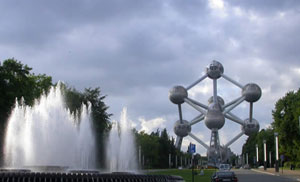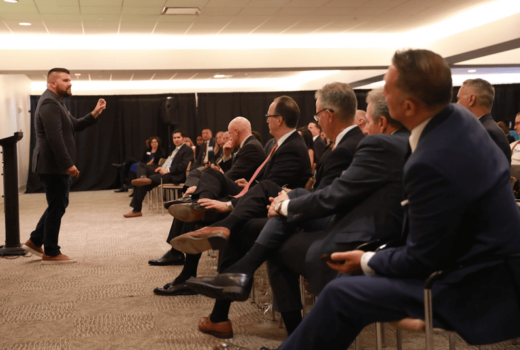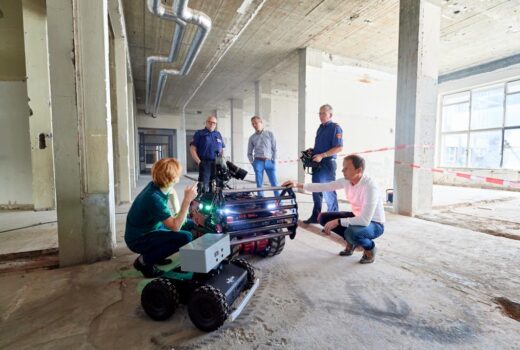Europa komt met masterplan R&D

Hier leest u de kernpunten uit haarkeynote rede bij de Lisbon Council, die zij vrijdag 5 maarthield:
— Innovation is no longer the preserveof a select elite. It is needed in every walk oflife. It is no longer limited to the laboratory orthe factory. It permeates every area of life.
It cannot be limited to the prosperous regions. It must spreadacross the whole territory of the Union. We are all innovators now- and the task ahead is to build, not just the “i-conomy”, but acohesive and prosperous “i-society.”
— One of my first tasks will be to draw up a newResearch and Innovation Plan, setting out how weintend to drive forward the research and innovation parts of theEurope 2020 agenda. Since innovation is a cross-cutting policy, Iwill work very closely with other Commission colleagues on this,such as Industry Commissioner, Antonio Tajani, and the Commissionerfor the Digital Agenda, Neelie Kroes.
This Plan will have to be ready by September because the Heads ofState and Government have decided to hold a special discussion onresearch and innovation at the Autumn European Council. This is yetanother sign of their growing importance for our economy andsociety. The Plan will make clear my intention to refocus researchand innovation policies very clearly on the so-called grandchallenges facing our society: climate change, energy security,food security, health and an ageing population.
And it will be based on a broad understanding of innovation. The”i-conomy” depends on a strong science base. But we must also beable to transform our inventions into innovative products andservices that the customer wants. More attention should bepaid to other forms of innovation, such as business model ormanagement innovation, design and marketing, and servicesinnovation, all of which are largely unrelated to researchspending.
— We must remember that scientists are not the only innovators!Indeed, innovation is not limited to theprivate sector. It can – and must – happen in schools andhospitals, crèches, community centres and care homes. In an age offiscal austerity, we must get more for less from our public sector.We are seeing the emergence of a new type of business, whichco-innovates with its customers and even its competitors, andwhich, rather than relying solely on its own employees, puts someof its data into the public realm, to leverage the talents andinsights of the global research community.
This has huge implications for the economy, education, energy andgovernment itself. It is fascinating on an intellectual level. But,of course, as a decision maker, I want to know, in very concreteterms, what I can do to help Europe succeed in this brave newworld.
— One issue that I know arouses a lot of interest is the3% R&D target. I know that this iscontroversial. But I believe that it should stay.
Research Ministers have told me in clear terms that its existencehas strengthened their hand in their dealings with their FinanceMinisters. Indeed, in most Member States, R&D intensity hasincreased since its introduction. Our failure to meet it is due tothe disappointing performance in some of the bigger countries. Withbudgets under pressure, governments may view research anddevelopment as an easy area for cutbacks. But we know, from theexperiences of countries like Finland, that raising R&D budgetsis the route to recovery.
We are suggesting national targets with robust monitoring.Moreover, we will get serious about improving the conditions forR&D investment, particularly in the private sector. This iswhere Europe’s R&D spending gap is. It accounts for two thirdsof the target.
— I want to remove, once and for all, the pension and socialsecurity obstacles which preventresearchers from moving freely between countries. And I want to putan end to the fragmentation of national research efforts and avoidduplication of effort.
At a time when public finances are under such pressure, we must getthe max out of every euro spent. And the up to 86 billion euro ofEU Structural Funds money we have for research must be used tomaximum effect, to upgrade research infrastructures across theUnion.
— I want a strong focus on industry-driven, appliedresearch in the next five years. We must strengthenthe links between all three sides of the knowledge triangle -higher education, business and research centres. As many of youwill know, this is a top priority for President Barroso.
We need to take a fresh look at our entire intellectual propertyframework. Indeed, we need to ask ourselves some pretty profoundquestions about how best to foster innovation in the early 21stcentury.
Meest Gelezen
Vrouwen houden universiteit draaiende, maar krijgen daarvoor geen waardering
Hbo-docent wil wel rolmodel zijn, maar niet eigen moreel kompas opdringen
‘Sluijsmans et al. slaan de plank volledig mis’
Wederom intimidatie van journalisten door universiteit, nu in Delft
‘Free riding brengt het hoger onderwijs in de problemen’



